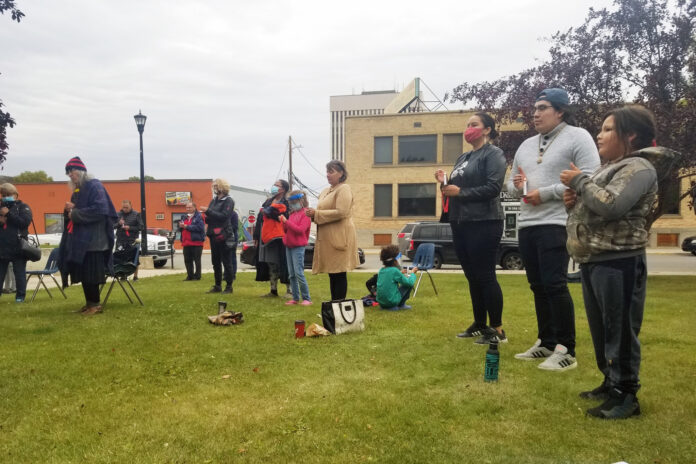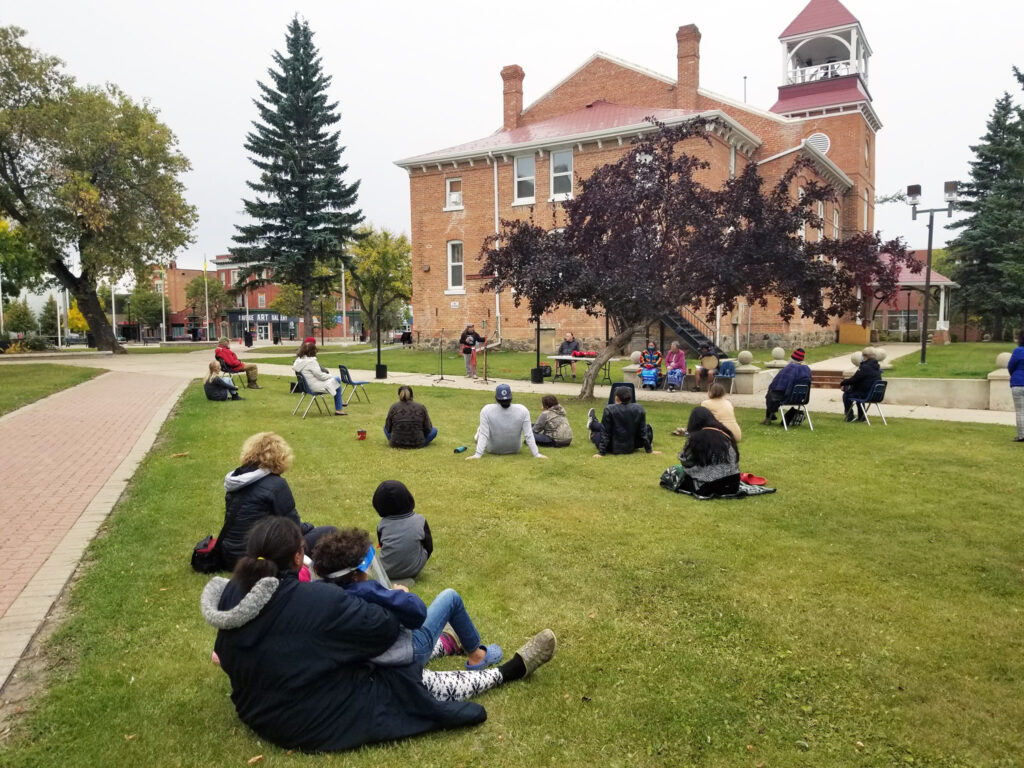
Tristen Durocher’s 44-day fast may be over, but supporters who gathered in Prince Albert on Sunday want the conversation around suicide prevention to continue.
Artists from across the province gathered outside the Prince Albert Arts Centre Sunday evening for a reception and candlelight vigil corresponding with the end of Durocher’s fast. Indigenous Peoples Artist Collective artistic director Michel Boutin said it was important to show solidarity with Durocher, who walked from Northern Saskatchewan to Regina to protest government inaction towards youth suicide in Indigenous communities.
“It felt right for us to be supporting his actions,” Boutin said in an interview afterwards. “This is a long-standing, ongoing, continuing issue that we just want to help keep the focus on.”
For IPAC, that means a renewed focus on northern youth. Boutin said they had planned to create artistic programs and workshops in the north, but those efforts were put on hold when the COVID-19 outbreak hit. Digital programs aren’t as effective as in person visits, he explained. They’ve already established a few partnerships with Indigenous artists for when the COVID restrictions end.

“It’s something we waivered with over the years, mostly due to expense and all the rest, but it’s really strengthened our resolve to focus on the north,” Boutin explained.
“Our goal is really to try to setup a working system that continues, rather than artists coming in to visit and leaving. It’s a rotating system, so there are always artists coming into the community.”
Boutin said there are multiple directions the conversation about suicide prevention can go. Much of that conversation will be political, but he said artists and arts programs are an important part of the solution. Many of the artists in attendance echoed those remarks.
“We try to connect with people on different levels,” said Kevin Wesaquate, one of several poets who read a selection of Durocher’s works during the vigil. “When we write our pieces, we’re writing a bit of ourselves and our own truths and our own little pieces of our identity and our worldview. I think that if we make these connections with other people, then we start something.”
Wesaquate said he appreciated Durocher’s efforts, and was relieved to see the young fiddler and poet complete his journey unharmed. Now he wants to make sure the conversation around youth suicide prevention keeps going. For Wesaquate, that means finding out why so many youth lack a sense of belonging.
“I’m in an urban environment, and I felt it first hand,” he explained. “You have a lot of First Nations youth, like where I’m from in Regina, or some of the urban centres that I’ve grown up in, that are very disconnected from their home communities…. There are a lot of other things that are in play there, but one I’ve always found is that sense of belonging really has to be there.”
Roughly 40 people attended Sunday night’s reception and vigil.
Tristen Durocher begin the 635 km walk from Air Ronge to Regina in early July to raise awareness about suicide, and protest a suicide prevention bill voted down by the provincial government. Once in Regina, Durocher began a 44-day fast in front of the Saskatchewan Legislature.
The provincial government and Provincial Capital Commission sought a court order to remove Durocher, saying he was in violating local bylaws. A judge ruled on Sept. 11 that Durocher would be allowed to complete his fast.

